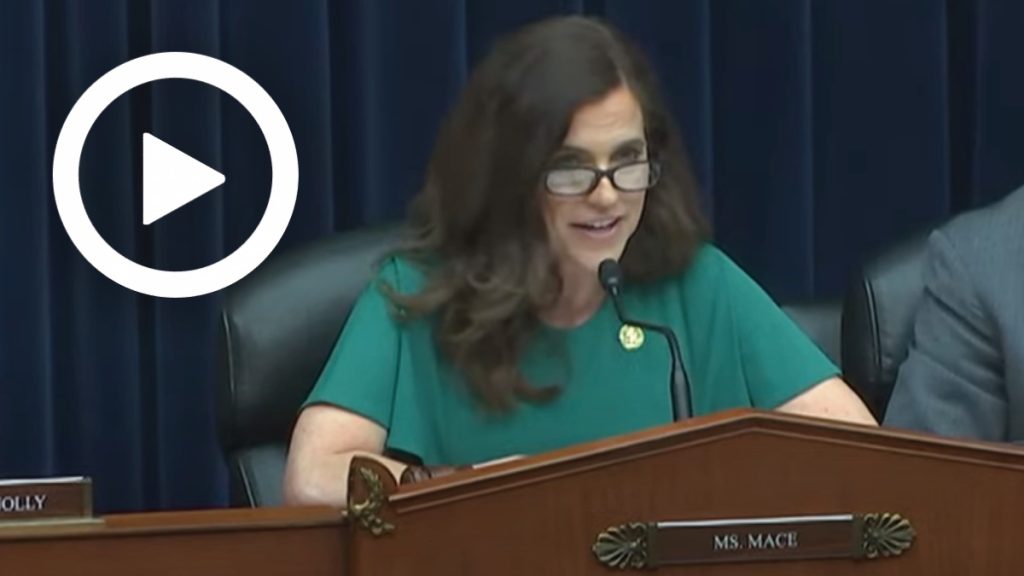Mace: We Must Have Reliable Safeguards Against Malicious Cyber Activity
WASHINGTON—House Subcommittee on Cybersecurity, Information Technology, and Government Innovation Chairwoman Nancy Mace (R-S.C.) opened today’s subcommittee hearing to examine the National Cybersecurity Strategy by emphasizing that the United States must have reliable safeguards to defend against malicious actors and protect Americans’ data. Rep. Mace laid out how failing to protect systems from cyber breaches threatens our economy and national security.
Below are Subcommittee Chairwoman Mace’s remarks as prepared for delivery.
Good afternoon and welcome to this hearing of the Subcommittee on Cybersecurity, Information Technology, and Government Innovation.
We will discuss the White House National Cybersecurity Strategy, which was issued three weeks ago today.
The Strategy is this Administration’s proposal for fighting a battle that we as a nation must win.
Key aspects of our everyday life now rely on the safe flow of data. That includes the delivery of medical care; the conduct of law enforcement activity; the operation of utilities; and the smooth flow of ground and air transportation.
All of these critical activities now depend on computerized systems accessing large data sets, and those data sets often contain sensitive and private information.
We must be able to trust the integrity of these systems – their ability to keep functioning and to preserve and protect the data they use.
When these systems fall victim to malicious hackers, the costs are enormous.
The Council of Economic Advisers has estimated that malicious cyber activity costs the U.S. economy more than $100 billion annually. A Rand report estimated the annual cost to be $250 billion dollars – a quarter trillion every year.
Aside from the dollar loss, these breaches erode trust in key institutions. For instance, federal government computer systems holding the confidential data of millions of Americans have been compromised by malicious actors too many times.
This is also a national security issue.
Many of the most sophisticated attacks come from abroad and target critical infrastructure.
In recent years, foreign hackers operating from within China, Russia and Iran have sought to disrupt our economy and society by infiltrating U.S. critical infrastructure systems, including airports and telecommunications networks, along with federal and state government systems.
We must have reliable safeguards against criminal and unauthorized use of data to ensure our economic security, our homeland security – and our national security.
That will require intelligent, coordinated action at the federal level.
To help the Executive Branch rise to that challenge, two years ago Congress created a new White House office to provide coherent direction and coordination to agency-level cybersecurity efforts across the federal government, including by spearheading a National Cybersecurity Strategy.
Prior Administrations have released similar cybersecurity strategies. But this is the first to be issued since the Office of the National Cyber Director was created in law.
I am pleased to have the acting head of the Office of the National Cyber Director as our witness here today.
There are many questions remaining about implementation of the National Cybersecurity Strategy.
I look forward not only to hearing about the Strategy document itself, but the role we can expect her office to play in its implementation – in other words, when the rubber meets the road and rhetoric must be translated into action.
But before I formally introduce our witness, I yield to Ranking Member Connolly to provide his opening remarks.
